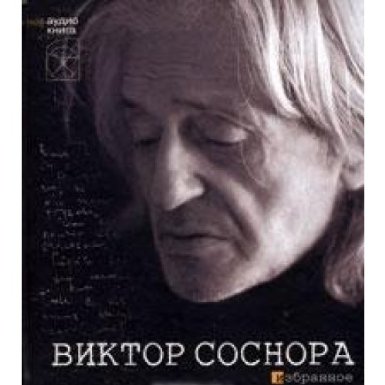About Victor Sosnora, by Michael Marsh-Soloway
 Viktor Sosnora was born in Alupka on the Crimean Peninsula in 1936. During WWII, Sosnora and his family endured the blockade of Leningrad for over a year, before being evacuated to the Kuban region in the Russian South. Soon thereafter, however, the Kuban region was occupied by Nazi forces. He once pretended to be dead after a bullet grazed his head to avoid detection by advancing Nazi soldiers. Sosnora was captured three times by the Gestapo and interrogated because of his family’s connections to detachments of Soviet partisan groups. He was released each time on account of his young age.
Viktor Sosnora was born in Alupka on the Crimean Peninsula in 1936. During WWII, Sosnora and his family endured the blockade of Leningrad for over a year, before being evacuated to the Kuban region in the Russian South. Soon thereafter, however, the Kuban region was occupied by Nazi forces. He once pretended to be dead after a bullet grazed his head to avoid detection by advancing Nazi soldiers. Sosnora was captured three times by the Gestapo and interrogated because of his family’s connections to detachments of Soviet partisan groups. He was released each time on account of his young age.
In 1945, Sosnora moved to Warsaw to reunite with his father, who served as a regional commander in Rokossovsky’s army. After touring Europe, the Sosnoras ultimately settled in the city of Arkhangelsk on the White Sea. In 1958, Sosnora enrolled in the Department of Philosophy at Leningrad State University, supporting himself by working as a factory electrician.
Shortly after his twenty-third birthday, Sosnora became the youngest author in the Leningrad Writers’ Union. His poems first appeared in print in 1960, and in 1962, he released his first book, January Downpour, which included a foreword by Nikolai Aseev. In 1965, he traveled to Paris to read his poetry, and in 1970 he became a professor at the New Paris University.
Throughout his lifetime, Sosnora attained popularity among diverse artistic circles and peoples. In Paris, he worked alongside the likes of Elsa Triolet and Louis Aragon. Despite losing his hearing as a result of complications from an operation on his pancreas, Sosnora continued to correspond with authors and readers around the world. In 1987, he toured the United States, and participated in poetry readings with Allen Ginsberg and FD Reeve. Sosnora considers himself an epic poet, especially in his early collection Horsemen (1969), but he also creates extraordinary lyric poetry.
In May 2011, Sosnora delivered the following essay, “Poetry and Poetics,” as part of his acceptance speech when he was awarded the title of Poet Laureate of the Russian Federation, the highest national honor bestowed on Russian writers in the field of poetry. His books are printed in many countries, including the United States of America, Germany, the Czech Republic, Slovakia, Bulgaria, Hungary, Italy, France, and others.
The publishing group Lenizdat released a collection of his poetry titled My Life (“Zhizn’ moya”) in 2013. Currently, Viktor Sosnora resides in St. Petersburg, where he continues to write, make public appearances, and participate in ongoing artistic discourses. He granted the translator and the University of Virginia special permission to print this translation.
References:
Emily Lygo. “Chapter 4: Viktor Sosnora.” Leningrad Poetry 1953-1975: The Thaw Generation. Bern, Switzerland: Peter Lang AG, 2010, 173-175.
Darra Goldstein. “An Interview with Viktor Sosnora.” The New York Review of Books. October 13, 1988.
Viktor Sosnora “Zhizn’ moya.” Izbrannye stikhotvoreniya. Laureat Rossijskoj natsional’noj premii “Poet”. Izdatel’skaya gruppa “Lenizdat”. Sankt-Peterburg, 2013.
Poetry and Poetics by Viktor Sosnora
Translated by Michael Marsh-Soloway
Yes, forgive me, I will not be speaking about poetry, but about poetics. Poetry is a term used too broadly, and poetry is everything: nature, and impressions, and love, and dreams, and reality, and velocity, and the sun, and darkness. It is possible to enumerate without end, and vocality, and muteness, etc., and all the like. In general, take a walk, soul, if only to provide something poignant for the soul.
Poetics is a term that is much narrower. It entails verse, not what, or about what, but how something came to be written. And here, we are stalking with paradox: just as somebody’s verses captivate the soul, so to say, tickle the nerves, summon laughter and tears, you then close the book as if you hadn’t really read anything at all.
A minor digression.
Soviet society in Stalin’s memory was not able to give “I”, but “we”, which reduced into, how should we frame it, poetic mooing. There could never be speech about the poetics of Soviet poets, and poetry predominated slavish labor.
In Leningrad, for thirty years, I guided different literary unions, of which it seems, there were no less than ten.
Why did these young poets show up? Somebody inculcated in them the notion that at the literary unions they could learn to compose verse. Did they learn? No. So, they went to the philology departments. Did they learn? No. The dream of the Soviet and post-Soviet intellectual that it is possible to teach somebody the arts was never realized. It couldn’t be.
I would be very careful in using the word “poetry”. In my dictionary, in general, there is no such term. But, while reading contemporary “poetry”, I discern, that in these rhymed or unrhymed texts, there is something indiscernibly “poetry”. It is, for the most part, rhymed or free-verse discourses on moral, common, or quasi-political themes. And in general, this term “poetry” is inapplicable today, yes, and may it always be.
The term “poetry” is a self-actualization, and so on, and so on.
If a poet is rhythmically interesting, it means that the rhythm of his own organism has been captured for them. Rhythm, and not “meaning”– we will leave meaning for the philosophers. And veritable prose should be rhythmic. Gogol justly called his “Dead Souls” a poema. If there is no rhythm in one’s scribbles, then it isn’t prose, but rather, belles-lettres.
But if this is the case, just what is this notorious “poetry”?
I think it is rather more likely a genetic manifestation, if not a literary one. More seemingly, it is a paranormal manifestation, rather than one that bears explanation. I am speaking about great poets, and not about good and different poets, of which there are exceedingly many, but appreciably, they are unified. I would try to account for this appreciation, let us state the result of Pushkin, who had in his ancestry the Moor Gannibal. Yes, this manifestation is true for Pushkin himself, his brother Lev, and his teacher Batyushkov.
Batyushkov had two brothers and an uncle, and they departed from “normal” life into “paranormal” life—all four ultimately did, only three did not write verses, but Batyushkov wrote them.
It seems to me that it is time for Russian literature to depart from amorphous definitions of so-called creativity toward practical definitions that have long been made by Western literature. That is to say, from sanctimony to reality- this sharply individual arrangement “I”. I am eurhythmics.
We are still not able to be ourselves, that is, to give an account to ourselves- what and from where? It is an honest account. And what we should do, while it agitates the particulars, is a way of life. It is an abundantly everyday gaze at the surrounding life and at the self. It couldn’t be simpler to cast back the particulars toward Batyushkov. You shouldn’t be surprised by this paranormal manifestation, as it’s known among the common people, “madness”, or as we will say directly, geniuses. In the arts, this affair is trivial. We will say, beloved Hemmingway during Soviet time was of this Pleiades of paranormal types, and before him, Flaubert, his teacher Maupassant, the Japanese author Akutagawa, Virginia Woolf, etc.; and of our authors, Khlebnikov, Mayakovsky, Tsvetaeva, Mandel’shtam, namely an entire Pleiades of “paranormal” geniuses.
А reasonable question: what is there for normal poets to do?
Well, nothing. Live in your own comfortable normal society and partake of the fruits of this society.
Period.
And beyond this period: live, as it’s advertised in the TV commercial:
-Doshirak- with love! [1]
April, 2011
[1]: Doshirak, a popular brand of instant noodles sold in Russia.
(c) Featured pictures by Alexander Borisenko
